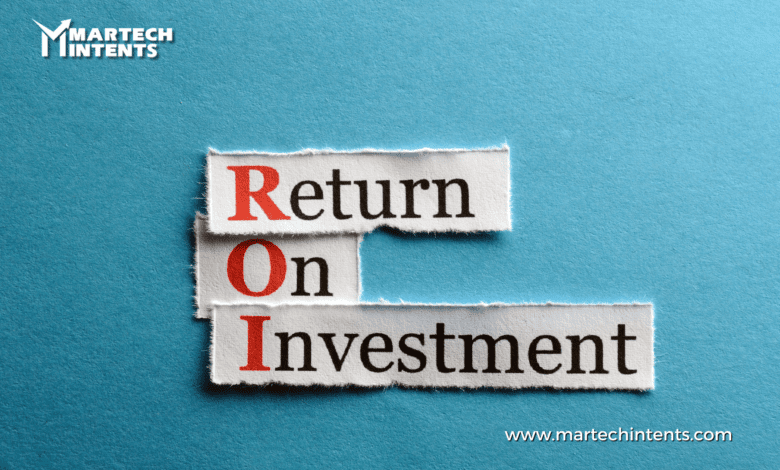How to Measure the ROI of Your MarTech Investments

In today’s data-driven marketing landscape, measuring the return on investment (ROI) of your MarTech (Marketing Technology) tools is crucial. MarTech offers a vast array of solutions, but without a clear understanding of their impact, it’s difficult to determine if your investments are paying off. Measuring the ROI of your MarTech investments allows you to optimize your marketing spend, demonstrate the value of MarTech to stakeholders, and ultimately drive growth for your business.
This guide will equip you with the knowledge and strategies to effectively measure the ROI of your MarTech investments.
Setting SMART Goals for Measuring MarTech ROI
Before diving into calculations, it’s essential to define success. Establish SMART goals (Specific, Measurable, Achievable, Relevant, and Time-bound) that align with your overall marketing objectives. Here are some examples of SMART goals for MarTech ROI:
- Increase website traffic by 20% within 6 months through targeted content marketing campaigns.
- Improve lead conversion rate by 15% in the next quarter using marketing automation workflows.
- Boost customer engagement on social media by 10% within a month through targeted social media advertising campaigns.
By setting clear goals, you can establish a baseline and track the impact of your MarTech investments on achieving those goals.
Calculating the ROI of Your MarTech Investments: Metrics and Considerations
There are two main components to consider when measuring the ROI of your MarTech investments: costs and benefits.
Costs:
Software licenses: Factor in annual or monthly subscription fees for your MarTech tools.
Implementation costs: Consider the time and resources invested in setting up and integrating your MarTech stack.
Training costs: Include any costs associated with training your team on how to use the MarTech tools effectively.
Ongoing maintenance: Factor in the ongoing costs of maintaining your MarTech stack, such as updates and technical support.
Benefits:
Increased revenue: Track how your MarTech investments contribute to increased sales and revenue generation.
Improved lead generation: Measure the impact of MarTech tools on lead capture and qualification rates.
Enhanced customer engagement: Quantify the increase in customer engagement metrics, such as website traffic, social media interactions, or email open rates.
Cost savings: Identify areas where MarTech tools have streamlined processes or reduced marketing costs.
Here’s a simple ROI formula to get you started:
ROI = (Benefits – Costs) / Costs x 100%
Important Considerations:
Long-term impact: The true value of some MarTech investments may not be immediately apparent. Track the impact over time to get a more holistic view of ROI.
Attribution challenges: Attributing results solely to MarTech can be difficult. Consider the influence of other marketing channels and brand awareness efforts.
Focus on value, not just cost: While cost is important, the true value of MarTech lies in its ability to improve marketing effectiveness and drive business growth.
Measuring the ROI of your MarTech investments isn’t an exact science, but by combining these strategies and considerations, you can gain valuable insights into the effectiveness of your MarTech stack and make data-driven decisions to optimize your marketing spend for a stronger return on investment.
Conclusion: Optimizing Your MarTech Investments for Growth
Measuring the ROI of your MarTech investments empowers you to make informed decisions about your marketing technology stack. By tracking progress toward your SMART goals, you can identify areas for improvement, allocate resources effectively, and ultimately leverage MarTech to achieve sustainable growth for your business.
Learn more about Martech Analytics and Reporting: Transforming Data into Actionable Insights
Remember, MarTech is a powerful tool, but its success hinges on ongoing evaluation and optimization based on data-driven insights. So, embrace the power of measurement, refine your MarTech approach, and unlock the full potential of your marketing technology investments.




